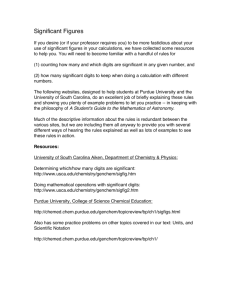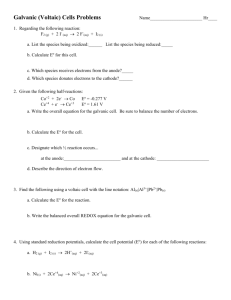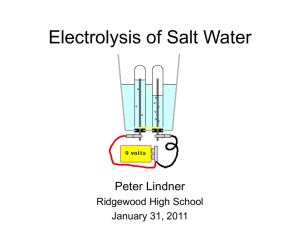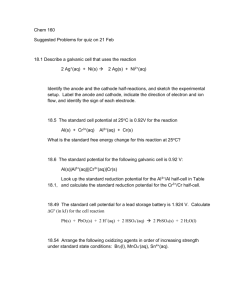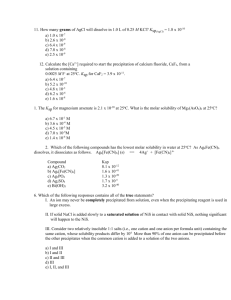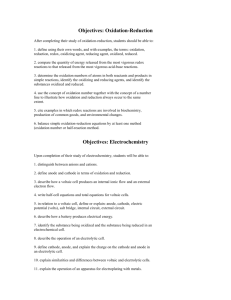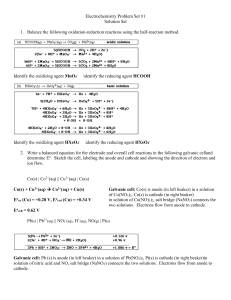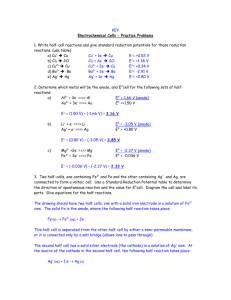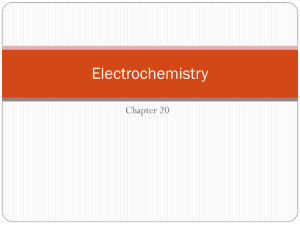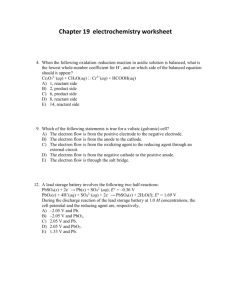Intro to Electrochemistry
advertisement
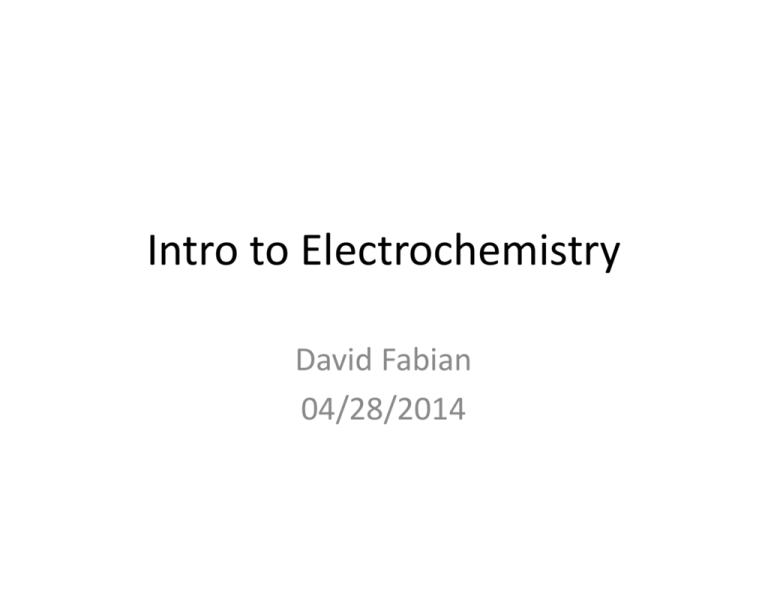
Intro to Electrochemistry David Fabian 04/28/2014 Electrochemistry basics Helpful pneumonic devices: OIL RIG Oxidation is losing electrons, reduction is gaining electrons AnOx RedCat Anode oxidation, cathode reduction Electrons flow from anode to cathode What are the half cell reactions? http://chemed.chem.purdue.edu/genchem/topicreview/bp/ch20/electr o.php#voltaic What are the half cell reactions? Zn2+ +2e‐ Zn Eo red = ‐ 0.76 vs. SHE Cu2+ + 2e‐ Cu Eo red = 0.34 vs. SHE Positive potential = favorable The reduction of Cu2+ is favorable this will be the reduction reaction Overall Cell potential? http://chemed.chem.purdue.edu/genchem/topicreview/bp/ch20/electr o.php#voltaic Overall Cell potential Eocell = EoCu – EoZn Eocell = 0.34 – (‐ 0.76) Eocell = 1.10 V Anode and Cathode http://chemed.chem.purdue.edu/genchem/topicreview/bp/ch20/electr o.php#voltaic Line notation Anode Cathode Single line = phase boundary Double line = two phase boundaries (one at each end of the salt bridge) 0.10 M Cu2+ 1.00 M Zn2+ http://chemed.chem.purdue.edu/genchem/topicreview/bp/ ch20/electro.php#voltaic Mass of Zn plated on Cu electrode The following reaction is observed at the cathode (copper): (1) ZnSO4(aq) + 2e‐ Zn(s) + SO42‐(aq) A current probe is used to measure the current (I) passing through the system as a function of time (t in sec). The electrical charge (q) can then be calculated using the following equation (Faraday’s Law): (2) q = I t If the electrical charge is known, the mass of zinc plated on the copper electrode can be calculated from the following equation: (3) m(Zn) = q M / n F M = atomic mass of Zn: 65.39 g/mol n = number of electrons in the half reaction F = Faraday’s constant: 96 485 C/mol , Calculate Avogadro’s Number, NA To calculate Avogadro’s number, NA, use the experimentally determined values of the mass of Zn(s) plated onto the copper strip and the total amount of electrical charge passed, qT, (4) NA F / e (qT * M ) /(n * m( Zn ) * qe) where qe is the charge of one electron
